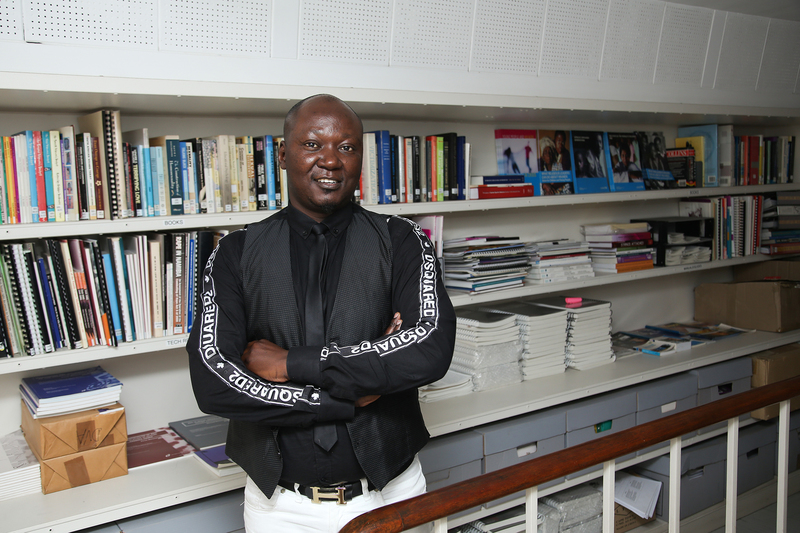Using big data to solve genetic riddles
24 December 2019 | Story Kim Cloete.Photo Je'nine May. Read time 3 min.
Using machine intelligence tools and big data is at the heart of pioneering work spearheaded by Associate Professor in the Division of Human Genetics, Emile Chimusa.
This young and dynamic statistical geneticist has established a research group which introduces a way to use machine intelligence tools to mine large scale biomedical data, so that it can pinpoint the genes associated with disease and therefore predict health and health risks.
The group undertakes human DNA sequencing within a population or within an ethnic group, which can be used to understand all kinds of disease, from HIV and tuberculosis to various cancers. Novel statistical and machine learning methods have been developed for uncovering the genetic basis of these diseases.
“We try to address the question of why the human species is different in terms of people’s response to disease susceptibility and resistance and how different people respond to treatment, with a goal to predict the human health risk.”
The Faculty is using machine intelligence tools and high performance computing within this field and is leading the way on the continent. Researchers conduct some of their research at the Centre for High Performance Computing (CHPC) in Cape Town.
For Chimusa, who was born and raised in the Democratic Republic of Congo, it could lead to breakthroughs in better understanding personalised medicine, particularly in Africa.
“We have novel data in Africa. This will really position us to better understand our own local health problems, as well as train people who will be able to compete in the market.”
Africa has different environments and high genetic diversity that shape the way people respond to treatment. Working on this pioneering research will help to develop medicines suited for Africans.
Chimusa’s research in this area has brought together a wide range of experts, from mathematicians, statisticians and computer scientists to biologists and medical doctors, who are capable of improving medical research as well as effectively Associate Professor Emile Chimusa analysing large scale biomedical data.
He believes it’s an extremely exciting field for the young generation.
“We have novel data in Africa. This will really position us to better understand our own local health problems, as well as train people who will be able to compete in the market.”
Chimusa holds a PhD in Computational Biology and Bioinformatics and was recently appointed an associate professor at UCT. The Division of Human Genetics falls under the Department of Pathology at UCT’s Institute of Infectious Disease and Molecular Medicine (IDM).
This story was published in Faculty of Health Sciences Year in Review 2019.
 This work is licensed under a Creative Commons Attribution-NoDerivatives 4.0 International License.
This work is licensed under a Creative Commons Attribution-NoDerivatives 4.0 International License.
Please view the republishing articles page for more information.










